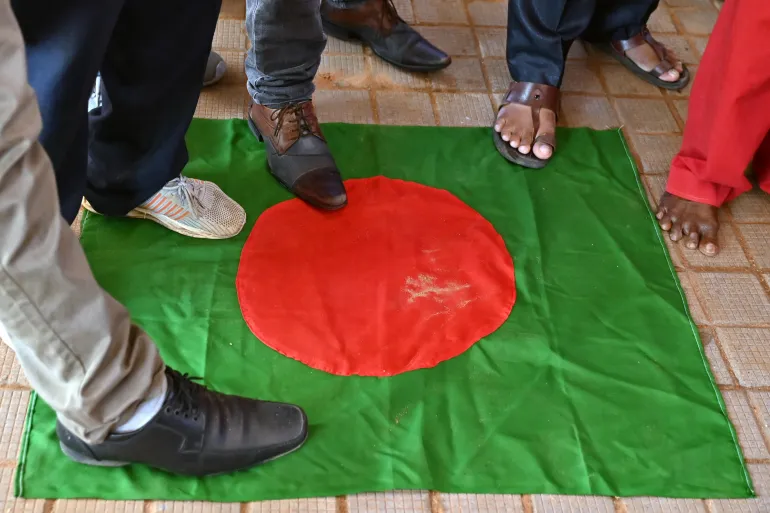India-Bangladesh ties have been frosty since former Prime Minister Sheikh Hasina fled to India after her removal in a student-led mass uprising in August, but diplomatic tensions have soared in recent days after the two South Asian neighbours traded accusations of alleged ill-treatment of the Hindu minority.
The war of words escalated after Bangladeshi authorities arrested Hindu religious leader Chinmoy Krishna Das last week on sedition charges, setting off protests across several places in India. On Monday, a Bangladeshi mission in Agartala in the northeast Indian state of Tripura was attacked, eliciting a furious reaction from Dhaka.
A day later, Dhaka summoned the Indian envoy in Bangladesh after condemning the attack.
“This particular act in Agartala stands in violation of the inviolability of diplomatic missions, as the Vienna Convention on Diplomatic Relations, 1961, asks for,” Bangladesh’s Ministry of Foreign Affairs said, calling on the Indian government to investigate the incident.
New Delhi said the attack was “deeply regrettable”. Indian authorities have since arrested seven people and suspended three police officials in connection with the attack.
What’s behind the renewed tensions between the two neighbours?
The arrest of Das, the Hindu leader, seems to be the latest trigger, but tensions have simmered since Hasina was granted asylum by India. Bangladeshi opposition and activists hold a grudge against India for its support of Hasina’s 15-year rule, marked by a crackdown on dissent and human rights abuse.



